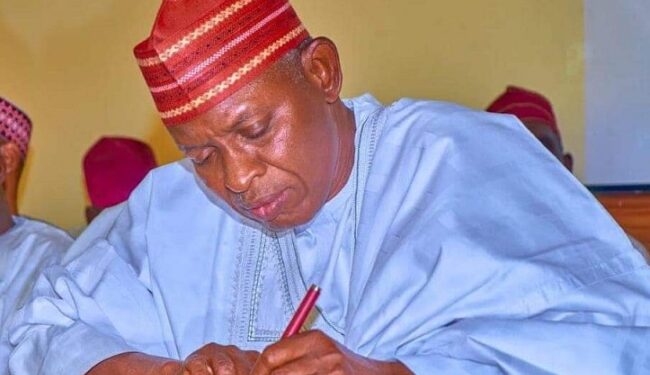
Kano state government has slashed tuition fees for the state-owned tertiary institutions by 50 per cent.
The commissioner for higher education, Dr Yusuf Ibrahim Kofar Mata, who made this known in a statement, said the resolve is to alleviate the compounding financial hardships for the good people of the state, thereby slashing the registration fees for the indigene students across the state-owned tertiary institutions.
He said the decision was made during the meeting with the heads of tertiary institutions, the visitor and the state’s governor on Tuesday afternoon.
His words:
“His Excellency, the Executive Governor of Kano State, Alhaji Abba Kabir Yusuf, has issued this heroic approval for the slash of 50% of the registration fees for all Kano State indigenes studying at state institutions to cushion the worsening economic condition the people have been going through in recent days all over the nation.
“The decision will further reduce the effect of this current economic adversity on passionate students and their ardent parents who might be suffering from the consequences of fuel subsidy removal and economic hardship, which is making life very difficult for the masses as a result of unimaginable inflation of essential commodities.
“Therefore, with this notice, all indigenes of Kano state studying regular courses at Aliko Dangote University of Science and Technology, Wudil; Yusuf Maitama Sule University, Kano; Sa’adatu Rimi University of Education, Kumbotso; Aminu Kano College of Legal and Islamic Studies, Kano State Polytechnic; Audu Bako College of Agriculture, Dambatta; Rabiu Musa Kwankwaso College of Advanced and Remedial Studies, Tudun Wada; Kano State College of Education and Preliminary Studies, are to enjoy the total relief of 50% reduction in the registration fee in the 2023/2024 academic session.”
He added that the decision is in line with the core objective and overarching government focus on education, not only education but quality education and sustainable educational development in the state.
